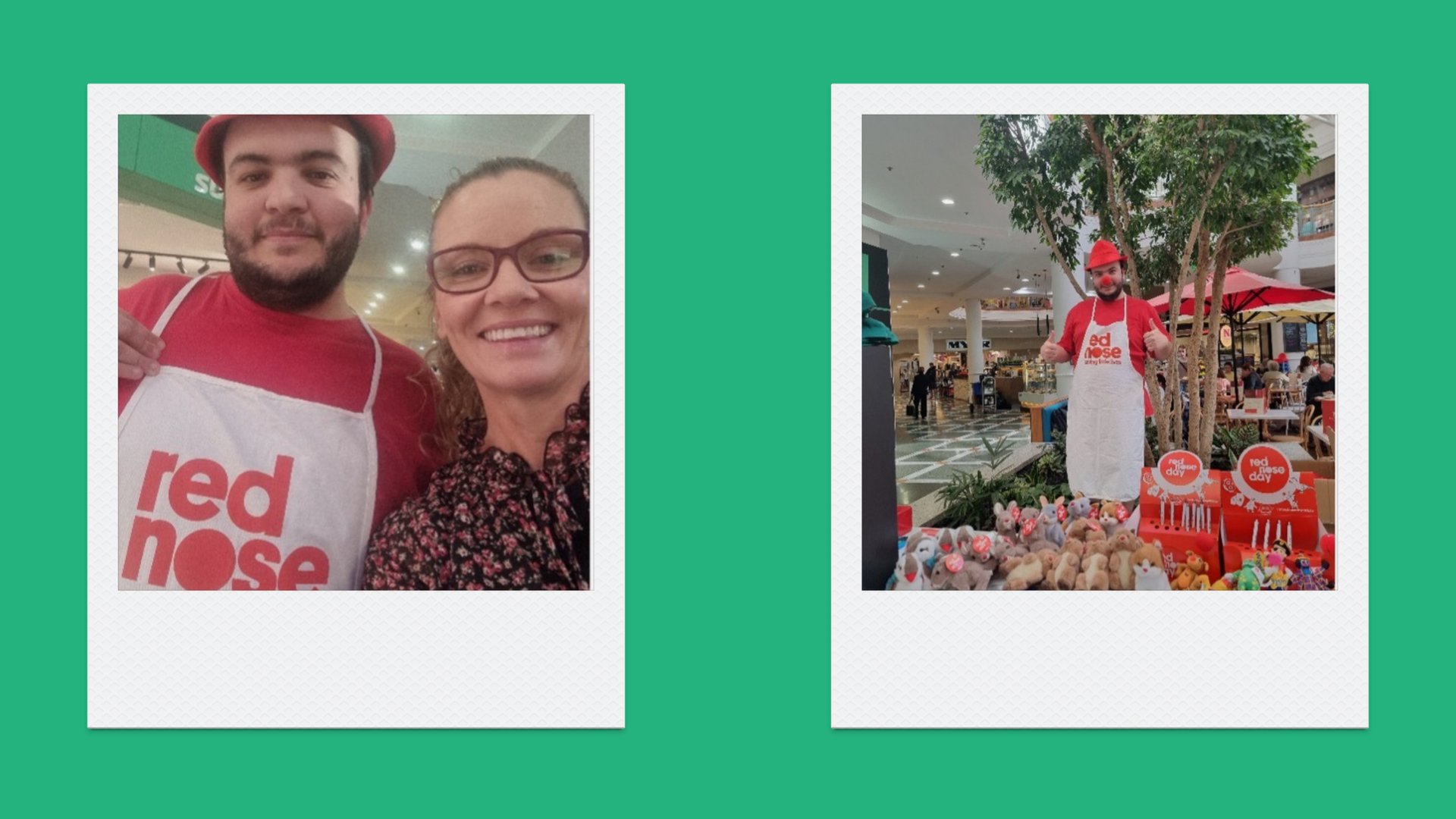From Penrith to Hearts Everywhere: John’s Red Nose Day Impact

From Penrith to Hearts Everywhere: John’s Red Nose Day Impact
On 28 August, our NDIS participant, John, proudly hosted a Red Nose Day stall at Penrith Westfields, raising an impressive $769.40 in support of life-saving research and support services for families affected by sudden infant death.
As John passionately puts it, this money is for “saving little lives.”
Although the stall was scheduled to run from 10am to 4pm, John kept it open until after 5.30pm, taking full advantage of late-night shopping to maximise donations and sales.
This marks the third year John has run a Red Nose Day stall, with previous events held in Richmond and Windsor. His dedication hasn’t gone unnoticed - Red Nose now contacts him in the lead-up to the event to confirm his interest. John also keeps himself informed by regularly checking the Red Nose website for volunteer updates.
John’s preparation is meticulous. He ensures he has plenty of time to:
- Place orders for merchandise
- Organise card payments via an app on his phone
- Coordinate with the venue
- Book nearby accommodation to arrive early
- Prepare his outfit and signage
- Recruit help from friends and family
This year, John’s brother assisted in the morning, as well as two close friends. Behaviour Support Practitioner Danielle Leek also attended the event to cheer John on and stayed to help pack up.
Danielle shared that John was a familiar face at the centre, warmly greeted by staff and friends. He was professional, polite, and incredibly well-organised—setting phone alarms for reminders, bringing all necessary equipment including a money tin, a wheeled cart, a secure bum bag for transporting funds, red balloons he personally blew up, and clearly marked price signs.
Beyond Red Nose Day, John also supports the Leukaemia Foundation through events like the World’s Greatest Shave and Light the Night - causes close to his heart after losing his mum to leukaemia in 2013.
When asked why he continues to fundraise, John responded with a big smile:
“To connect with people and raise money to save little lives, of course.”
John’s commitment, warmth, and community spirit are truly inspiring. We’re proud to support him and celebrate his efforts.
Pictured above: (L) John and Danielle at the Red Nose stand (R) John standing with his Red Nose Store.
News & Insights
Check Our Latest Resources







